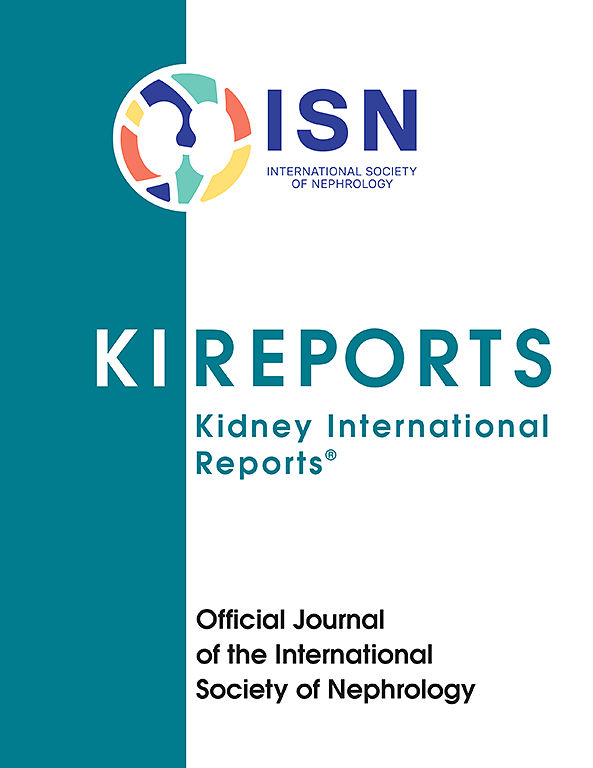Patient and Provider Attitudes Toward Patient-Facing Kidney Organ Offer Reporting
IF 5.7
2区 医学
Q1 UROLOGY & NEPHROLOGY
引用次数: 0
Abstract
Introduction
In the United States (US), deceased donor kidney offers are most commonly declined by transplant centers on behalf of waitlisted candidates, without notifying them. We sought to understand patient and provider attitudes toward patient-facing organ offer reporting.
Methods
We conducted a cross-sectional survey of patients, nephrologists, and nephrology social workers on the National Kidney Foundation mailing list and the medical and surgical directors of US kidney transplant programs.
Results
Among 755 patient respondents, 64% wanted to receive organ offer reports. Patients who wanted organ offer information were younger, more likely to be of a non-White race, and more likely to be on dialysis or on the waiting list. Of the patients, 87% reported that centers should be required to tell candidates about the offers they receive, and 62% reported that candidates should be informed after every offer. Among the 107 nephrology respondents, 73% reported that candidates should be provided with organ offer information and 88% reported that they would want to receive a copy of their patients’ offer reports. Among 26 transplant program director respondents, 77% reported that candidates should not be notified of offers declined on their behalf. If organ offer reports were required, most program director respondents believed that they should include the reasons offers were declined and should not include offers for kidneys that were ultimately discarded.
Conclusions
Most patients and nephrology providers, but only a minority of transplant program directors, supported the sharing of patient-facing information about individual deceased donor kidney offers that were declined on candidates’ behalf.

病人和医生对病人面对肾器官报告的态度
在美国,最常见的情况是,移植中心代表候选者拒绝已故捐赠者的肾脏捐献,而不通知他们。我们试图了解患者和提供者对面向患者的器官提供报告的态度。方法:我们对美国国家肾脏基金会邮件列表中的患者、肾病学家和肾病学社会工作者以及美国肾脏移植项目的内科和外科主任进行了横断面调查。结果755例受访患者中,有64%的患者希望获得器官提供报告。需要器官提供信息的患者更年轻,更有可能是非白人种族,更有可能正在进行透析或在等待名单上。在患者中,87%的人报告说,中心应该被要求告诉候选人他们收到的offer, 62%的人报告说,候选人应该在每次offer后被告知。在107名肾内科受访者中,73%的人表示应该向候选人提供器官报价信息,88%的人表示他们希望收到患者报价报告的副本。在26位接受调查的移植项目主任中,77%的人表示不应该通知候选人以他们的名义被拒绝。如果需要器官提供报告,大多数项目主管受访者认为,报告应该包括拒绝提供的原因,而不应该包括最终被丢弃的肾脏。结论:大多数患者和肾内科医生,但只有少数移植项目主任,支持分享患者面对的信息,这些信息是关于个人已故捐赠者肾脏的提议,而这些提议被候选人拒绝了。
本文章由计算机程序翻译,如有差异,请以英文原文为准。
求助全文
约1分钟内获得全文
求助全文
来源期刊

Kidney International Reports
Medicine-Nephrology
CiteScore
7.70
自引率
3.30%
发文量
1578
审稿时长
8 weeks
期刊介绍:
Kidney International Reports, an official journal of the International Society of Nephrology, is a peer-reviewed, open access journal devoted to the publication of leading research and developments related to kidney disease. With the primary aim of contributing to improved care of patients with kidney disease, the journal will publish original clinical and select translational articles and educational content related to the pathogenesis, evaluation and management of acute and chronic kidney disease, end stage renal disease (including transplantation), acid-base, fluid and electrolyte disturbances and hypertension. Of particular interest are submissions related to clinical trials, epidemiology, systematic reviews (including meta-analyses) and outcomes research. The journal will also provide a platform for wider dissemination of national and regional guidelines as well as consensus meeting reports.
 求助内容:
求助内容: 应助结果提醒方式:
应助结果提醒方式:


